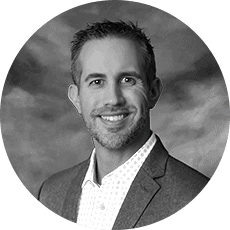The Legacy Software Stranglehold: How to Break Free, Shrink Costs, and Do More with Less – Part 1

Part 1 – 7 Signs You’re Ready for Change, and the Cost of Doing Nothing
W Energy Software has teamed up with the Novus Consulting team to bring their voice of authority to the upstream oil & gas C-suite. Through this blog series, we’re going to talk candidly about the lack of innovation in the back office, and why old legacy technology is holding upstream companies back – just as much as an entrenched mindset and culture of doing things the way they have always been done. Some leading organizations are afraid of making the change that will ultimately allow them to operate more efficiently, build business resilience, and unleash the potential of their workforce, by eliminating the data and cultural ‘silos’ that are holding them back. They are choosing instead to maintain the status quo, and kick the can down the road exposing them to the risk of being at the mercy of market fluctuations, and of being out-performed by their peers who have modernized their accounting, land, and production systems. In this blog series, Chevy Thomason, a founding partner at Novus Consulting, discusses how to navigate and close the widening technology chasm with unified upstream solutions built on the cloud, and even more importantly how to navigate change, and create a data-driven culture that will increase business performance, unlock agility, and save your team millions.
Let me tell you about a recent meeting I had. I had walked into the office of a Chief Financial Officer for a larger E&P with a strong business case for deploying modern, cloud-based software and data management that could save the company millions. It should have been an open and closed case. With years of experience in information technology and helping oil & gas companies cross the chasm from legacy platforms to the cloud, I was confident in telling the CFO that a company of her size is likely overspending $1M annually on 20- to 30-year-old accounting, land, production, and other systems along with the G&A that goes along with it. Plus, based on my extensive experience and analysis of many E&Ps, I estimated that the company accrued about 600 hours per month in duplicated effort, about half of which was centered around financial workflows. It was a good meeting. I walked out of the CFO’s office knowing she agreed in principle with the business case for digital transformation – yet, much to my surprise, learned soon after that the E&P opted to do nothing.
Over the next few posts in this guest blog series, I’m going to present a strong business case for upstream companies to upgrade not just their software, but the way they think about data and integrate corporate knowledge across departments; breaking down data silos and siloed thinking. I’m going to take a deep dive into the challenges and solutions with checklists to help you navigate choice of software, setting up a data-driven culture, and driving and sustaining transformation in your organization. But first, I’d like to answer two questions:
1 – Why is there pervasive resistance to change?
2 – What is the cost of doing nothing?
Untangling Resistance to Change
There is a large gap between what many operators can achieve with their current ERP systems, and what is now possible through the cloud – automation, AI, analytics, and a technology capability chasm that is only widening with time. My experience shows that attaining the prize of a modern technology stack and benefits of a highly collaborative, data-driven, low-cost operation takes more than digital transformation, it takes business transformation.
We’ve seen a wave of innovation transform drilling and field operations, so what’s holding back that wave in the back office? Many energy professionals have effectively grown up, and built their careers around a lot of the legacy software products. Case in point, one E&P’s team uses a 20-year-old solution for accounting and land. Even though it’s expensive to license, and has poor acreage reporting, the software is what they’ve known for decades. If an innovative new CFO wouldn’t rock the boat, there’s nothing an outside consultant can do to pry people away from what they’re used to, even if it would make their lives easier, increase productivity, and save money. And it doesn’t help when legacy software vendors drop their prices at any sign of clients looking to modernize. All too often, E&P’s opt to kick the can down the road, and renew their legacy software licenses, trading short-term licensing cuts for long term opportunity and building business resilience.
While choice of technology can compartmentalize and limit the flow of business-critical information, there are also entrenched cultural data silos in some organizations. People who sit across the hall from each other may have very different views about the types of oil & gas data that matter to their particular workflow. As an industry, we just haven’t done enough to place a value on data and build cultures that see it as an asset for the entire organization to consume. This explains why there is pervasive resistance not only to moving away from legacy software, but to establishing robust data management practices that can increase the free flow of validated, decision-ready data. Creating even more resistance is an oil & gas workforce nearing retirement who has been hit time and again, with industry busts. At this point in their careers, many energy professionals see upgrading as injecting unwanted uncertainty or requiring them to do even more when their bandwidth is already maxed out.
Checklist: Are You Ready for Change?
Let’s start first with a simple checklist to assess where you are in the spectrum of technology adoption. If any of these are true about your oil & gas business, you are ready for business transformation:
- Your support costs fluctuate, and services are harder, more costly to find.
- You have been dinged on an external audit for software-related items.
- Your engineers, accountants, land techs, and geologists constantly ask for more data.
- Software interfaces look outdated and are cumbersome to use.
- You have a highly skilled workforce, but they maxed out and simply cannot take on more work – this is even harder when acquiring or divesting an asset.
- Your teams are entering wells, vendors, and cost centers in 3 or more applications.
- Your software vendor provides very little support, forcing your team to spend big on integrations and resorting to complicated excel workarounds – leading to excel hell.
The Price of Standing Still
There are very measurable costs associated with kicking the ‘legacy software change’ can down the road. Even when vendors drop their licensing fees to retain clients, it’s a story of diminishing returns akin to renting a used car indefinitely. Adding to the total cost of owning accounting, land, production operations, and the other software systems an E&P needs, it’s the decisions made on bad, incomplete, or multiple versions of data that accrue staggering hidden and opportunity costs.
Connecting the right data with the right people in your organization can unlock millions in cost savings. Because of data silos and a siloed culture at many energy companies, something as simple as knowing how much subsurface coverage to carry for your acreage can be a shot in the dark if accounting and risk management don’t have access to reliable, accurate vertical depth data. In the absence of data, your team often resorts to one-off decisions just to get the job done, such as pulling a name out of a hat or giving the job to a buddy for oilfield supplies when a master vendor list would make the decision easy.
What about duplicate data? I know of companies that have overpaid for oil and water hauls because they were receiving duplicate invoices; a costly oversight that could have been prevented with a digital field ticketing system. In these examples, and countless others, robust oil & gas data management has the potential to save hundreds of millions. But solutions are reactive. With the right digital infrastructure already in place, your team can be proactive and get ahead of problems, from accounting, land, and field operations to HSE and compliance.
 |
Chevy Thomason has over 17 years of experience in data & information management, spending 15 years with Chesapeake Energy, building and expanding enterprise data management disciplines. During his time, he held various positions from Director – Well & Facility Information Management to Advisor – Enterprise Data Strategy where he was responsible for developing and expanding a data management footprint allowing data to be turned into valuable and trusted information. |

Subscribe to Our Insights
Be the first to access blogs, case studies, videos, and more from our experts.